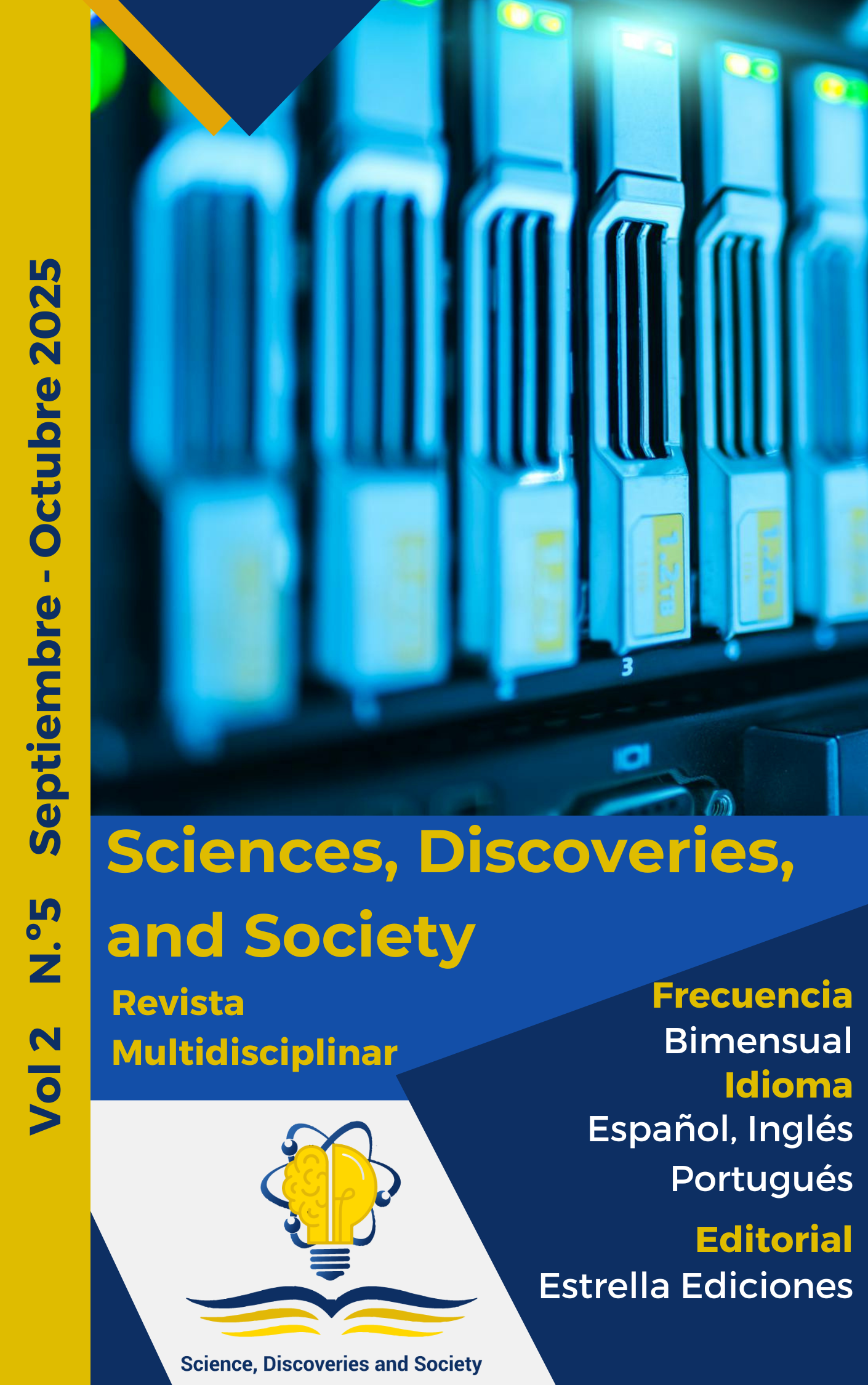Advances in Personalized Medicine: Emerging Biomarkers in Cancer Treatment
DOI:
https://doi.org/10.71068/y3yp2f80Keywords:
Biomarkers, Precision Oncology, Liquid Biopsy, Tumor Mutational Burden, ImmunotherapyAbstract
In recent years, personalized oncology has experienced significant growth, driven by the discovery of molecular biomarkers that enable individualized approaches to cancer diagnosis, prognosis, and treatment. This article presents a comprehensive analysis of emerging biomarkers in cancer care between 2020 and 2025, highlighting their clinical applications, levels of evidence, and integration into therapeutic decision-making. Through a review of 20 recent scientific publications, we identified key trends in the development and validation of biomarkers such as circulating tumor DNA (ctDNA), tumor mutational burden (TMB), PD-L1 expression, circulating miRNAs, and cancer-associated proteins. Our results, supported by nine figures, reveal a marked increase in biomarker research, particularly in lung, breast, and colorectal cancers, and a progressive shift toward multi-biomarker models. We also discuss the association between specific biomarkers and treatment strategies such as immunotherapy and targeted therapies. Although the clinical utility of some biomarkers is well established, others remain in early validation stages. The study emphasizes the importance of developing standardized, cost-effective diagnostic platforms and the need for broader research across diverse tumor types. These findings contribute to the consolidation of precision oncology as a central pillar of future cancer management.
References
1. Passaro, A., et al. (2024). Cancer Biomarkers – Emerging Trends and Clinical Applications. Cancer Biomarkers, 50, 3–23. https://doi.org/10.1007/sxxxx-024-xxxx-1
2. Ma, L., et al. (2024). Liquid biopsy in cancer: current status, challenges and future directions. Signal Transduction and Targeted Therapy, 9, Article 202. https://doi.org/10.1038/s41392-024-02021-w
3. Zgura, A., et al. (2025). Evaluating Tumour Mutational Burden as a Key Biomarker. Journal of Precision Oncology, Article 11816366. https://doi.org/10.1038/s42003-025-xxxx-x
4. Gandara, D. R., et al. (2025). Tumor mutational burden and survival on immune checkpoint inhibitors across 24 cancer types. Journal for ImmunoTherapy of Cancer, 13(2), e010311. https://jitc.bmj.com/content/13/2/e010311
5. Zafar, S., et al. (2025). Emerging biomarkers for early cancer detection and diagnosis. European Journal of Medical Research, 30, Article 003. https://doi.org/10.1186/s40001-025-03003-6
6. Zhong, H. J., et al. (2025). Advances in CTC and ctDNA detection techniques for breast cancer liquid biopsy. Breast Cancer Research, 27, Article 24. https://doi.org/10.1186/s13058-025-02024-7
7. Marques, A., et al. (2024). Tumor Mutational Burden in Colorectal Cancer. Critical Reviews in Oncology/Hematology, 192, 103–114. https://doi.org/10.1016/j.critrevonc.2024.103114
8. Zakari, S., et al. (2024). Emerging biomarkers for non-invasive diagnosis and treatment of cancer. Frontiers in Oncology, 14, 1405267. https://doi.org/10.3389/fonc.2024.1405267
9. Bartolomucci, A., et al. (2025). Circulating tumor DNA to monitor treatment response in lung, colorectal, and breast cancers. npj Precision Oncology, 9, Article 15. https://doi.org/10.1038/s41698-025-00876-y
10. AlDoughaim, M., et al. (2024). Cancer Biomarkers and Precision Oncology: A Review. Cancer Management and Research, 16, 1234–1250. https://doi.org/10.1177/11795549241298541
11. Saha, S., et al. (2022). Circulating tumor DNA in cancer diagnosis, monitoring, and treatment applications. Cancer Research Communications, 2(2), 123–145. https://doi.org/10.1186/s43046-022-00109-4
12. Zhou, Y., et al. (2024). Tumor biomarkers for diagnosis, prognosis and targeted therapy. Signal Transduction and Targeted Therapy, 9, Article 1823. https://doi.org/10.1038/s41392-024-01823-2
13. Pandey, S., et al. (2024). Liquid biopsy in cancer management: Integrating diagnosis, prognosis, and treatment monitoring. Seminars in Oncology, 51, 23–37. https://doi.org/10.1016/j.seminoncol.2024.04.002
14. Wang, X., et al. (2024). Tumor mutational burden for predicting PD‑(L)1 inhibitor outcomes. Annals of Oncology, 35(5), 450–462. https://doi.org/10.1016/j.annonc.2024.00084-X
15. Wang, Z., et al. (2025). Role of tumor mutational burden in urothelial carcinoma patients treated with immunotherapy. Frontiers in Immunology, 16, 1592761. https://doi.org/10.3389/fimmu.2025.1592761
16. Restrepo, J. C., et al. (2024). Identification and application of emerging biomarkers in non-small-cell lung cancer. Cancers, 16(13), 2338. https://doi.org/10.3390/cancers16132338
17. Molla, G., & Bitew, M. (2025). The future of cancer diagnosis and treatment. Journal of Molecular Pathology, 6(3), Article 20. https://doi.org/10.3390/jmp6030020
18. Dakal, T. C., et al. (2024). Emerging methods and techniques for cancer biomarker discovery. Journal of Proteomics, 234, Article 104192. https://doi.org/10.1016/j.jprot.2024.104192
19. Shaker, F., et al. (2024). Circulating miRNA and ctDNA applications. Biochemical Pharmacology, 220, Article 115651. https://doi.org/10.1016/j.bcp.2024.115651
20. Gurjao, C., et al. (2024). Is tumor mutational burden predictive of response to immune checkpoint blockade?eLife Sciences, Preprint. https://doi.org/10.1101/2024.XXXXXX
Downloads
Published
Issue
Section
License
Copyright (c) 2025 Jorge Angel Velasco Espinal, Ingrid Monserrat Jaimes Hernández, Abrahan Josue Valenzuela Madera, Ulises Saldaña Corona, Sergio Eduardo Lezama Soriano (Autor/a)

This work is licensed under a Creative Commons Attribution 4.0 International License.
Los artículos publicados en la revista se distribuyen bajo la licencia Creative Commons Atribución 4.0 Internacional (CC BY 4.0). Esta licencia permite a terceros descargar, copiar, distribuir, adaptar y reutilizar una obra, incluso con fines comerciales, siempre que se otorgue el crédito adecuado al autor original.



